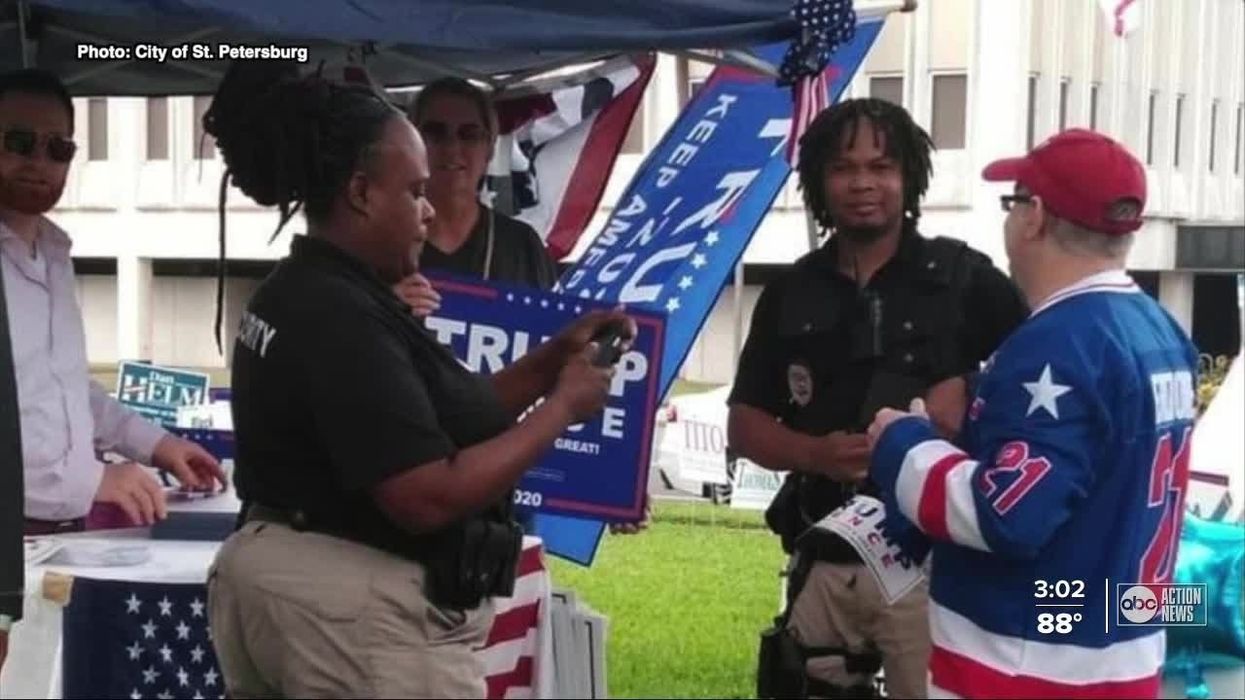There's been growing concern about voter intimidation in the presidential election. Last month, Philadelphia officials turned away a group of Trump campaign poll watchers who were breaking Pennsylvania law. In Virginia, supporters of the president temporarily blocked an early voting site, forcing officials to escort voters to cast ballots. And in Minnesota, a private security company recruited former soldiers to guard polling sites, alarming election officials.
Voters often speak of "running the gauntlet" of partisan supporters to get to the polls. No one knows for sure how the rest of the election will play out, or how this "enthusiasm" will be interpreted by voters. But voters should know that officials are aware of these threats and have been planning for them.
We are both former local election officials who have observed voter intimidation in previous cycles. We now study elections, both within and outside of the U.S., and regularly interact with current election officials. We want to share what we know officials are doing to make voting secure.
Training poll workers
Across the country, election officials are recruiting and training workers to staff polling places. While much of their training is properly focused on how to ensure voters can successfully cast ballots amid the pandemic, poll workers also are taught how to handle a serious conflict at the polling place. Poll workers are trained on de-escalating such situations, when to reach out to election officials for help, and when, if necessary, to contact law enforcement.
Laws protect voters
All states have laws regarding who is authorized to be in the polling place. In many states, that means voters (and someone to assist the voter if necessary), poll workers and sanctioned observers. Local jurisdictions have rules about where the public can be and what's allowed. Voter intimidation is against the law in every state.
Officials are also coordinating to ensure law enforcement can respond quickly to any serious disturbances. In some cases, law enforcement is present with election officials at Election Day command centers. They monitor voting and help troubleshoot issues as needed. In other cases, law enforcement may accompany "rovers," election workers who check on polling places throughout the day.
Finally, election officials are reviewing security plans for each voting location. These plans include ensuring multiple exits and bolstering safety. Security shortcomings due to polling place structures are being mitigated. Electioneering areas are being clearly established.
What voters can do
While the above measures are helpful, there are things the broader public can do too. One, if you see something, say something. Report suspicious activity to your local officials or police when appropriate. There's a reason local election officials are trusted by broad swaths of the public. Regardless of the outcome, most are hellbent on ensuring the election process is fair.
Next, vote early if you can. Despite the pandemic, large numbers of voters will vote in-person on Election Day. While election officials will do their best to help keep the peace, they don't have infinite resources. Fewer voters to process on Nov. 3 means they'll be able to respond more quickly to any incidents that do occur.
Finally, make sure you know the rules. Each state has guidelines on the voting process, including how it can be observed. From our experience, many conflicts arise because voters don't know the rules. There are plenty of legal ways to both vote and express support for candidates. If you're not sure what those ways are, reach out to trusted sources of information, such as your local election officials, to find out.
David Levine is an elections integrity fellow at the Alliance for Securing Democracy and a former election official in Ada County, Idaho. Tammy Patrick is a senior advisor for elections at Democracy Fund and a former election official in Maricopa County, Ariz. Read more from The Fulcrum's Election Dissection blog or see our full list of contributors.



















